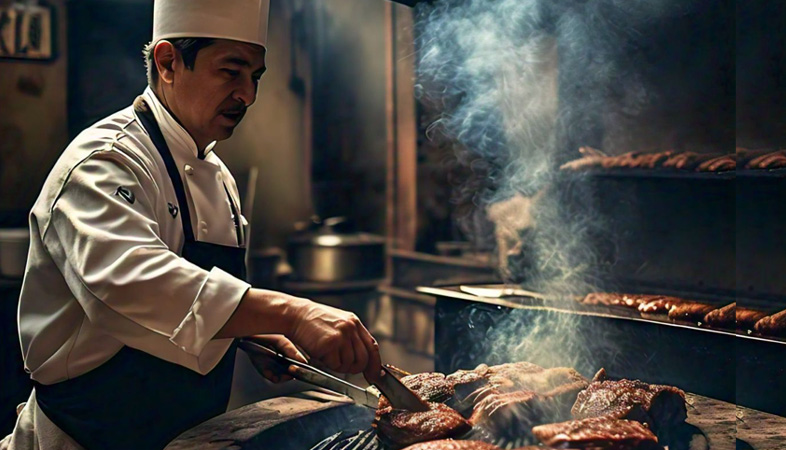Training and Development in Kitchen Stewarding: Investing in Education and Skill-Building Programs to Empower Stewarding Staff
Training and development programs are essential for empowering stewarding staff to excel in their roles and contribute to the overall success of a commercial kitchen.
In the dynamic environment of a commercial kitchen, the role
of kitchen stewards is vital for maintaining cleanliness, organization, and
efficiency. To ensure that stewards are equipped with the knowledge, skills,
and confidence to perform their duties effectively, investing in training and
development programs is essential. By providing opportunities for education and
skill-building, kitchen managers can empower stewarding staff to excel in their
roles and contribute to the overall success of the operation.
Training and development initiatives in kitchen stewarding encompass a wide range of activities aimed at enhancing job performance, fostering professional growth, and promoting a culture of continuous learning. From hands-on practical training to classroom instruction and online courses, these programs are designed to meet the diverse needs and learning styles of stewarding staff. By investing in education and skill-building, kitchen managers demonstrate their commitment to the professional development and well-being of their team members.
Practical training sessions provide stewarding staff with the opportunity to learn essential skills and techniques related to dishwashing, sanitation, and equipment maintenance. Through hands-on experience, stewards gain proficiency in operating dishwashing machines, handling cleaning chemicals safely, and maintaining cleanliness standards in accordance with health and safety regulations. Practical training sessions also allow stewards to practice teamwork, communication, and problem-solving skills in a real-world kitchen environment.
In addition to practical training, classroom instruction plays a crucial role in educating stewarding staff on topics such as food safety, hygiene practices, and environmental sustainability. Classroom sessions provide a structured learning environment where stewards can acquire theoretical knowledge, review best practices, and discuss relevant industry trends and regulations. By incorporating interactive elements such as group discussions, case studies, and quizzes, classroom instruction engages stewards and reinforces key concepts.
Furthermore, online courses and e-learning platforms offer flexible and convenient options for stewarding staff to access training materials and resources at their own pace. Whether it's a self-paced module on food handling procedures or a webinar on equipment maintenance techniques, online learning allows stewards to enhance their skills and knowledge remotely, without disrupting their work schedules. E-learning platforms also enable kitchen managers to track progress, monitor completion rates, and evaluate the effectiveness of training initiatives.
Beyond technical skills training, investing in the development of soft skills such as communication, time management, and leadership is essential for empowering stewarding staff to excel in their roles and advance their careers. Workshops, seminars, and coaching sessions provide opportunities for stewards to enhance their interpersonal skills, build confidence, and cultivate a positive attitude towards their work. By fostering a culture of continuous learning and personal growth, kitchen managers inspire stewarding staff to strive for excellence and contribute to the overall success of the kitchen operation.
Training and development programs are essential for empowering stewarding staff to excel in their roles and contribute to the overall success of a commercial kitchen. By investing in education and skill-building initiatives, kitchen managers demonstrate their commitment to the professional development and well-being of their team members. Through practical training, classroom instruction, online learning, and soft skills development, stewarding staff can enhance their job performance, expand their knowledge base, and achieve their full potential in the dynamic and challenging environment of a commercial kitchen.
.png)




























